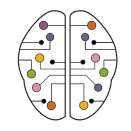Compared to other opioids, methadone withdrawal symptoms tend to be slower to onset, longer in duration, and milder in intensity. But it can last for several weeks or even months. This is because methadone has a longer half-life than most other opioids, meaning it stays in the body longer.
Symptoms of methadone withdrawal may include nausea, vomiting, diarrhea, stomach cramps, anxiety, restlessness, and cravings for the drug. However, unlike other opioids, methadone withdrawal symptoms tend to peak later (around 72 hours after last dose) and last longer (up to 3-4 weeks) due to its slow elimination from the body.
Tramadol is a weak μ-opioid receptor agonist, a serotonin releaser and a reuptake inhibitor of norepinephrine. It has some opioid properties but not acting as a strong opioid. At least in theory it is not a good option for avoid methadone withdrawal.
There are not availabnle studies for methadone detoxification using tramadol. There is a study comparing tramadol (200 mg/8h) and methadone (20 mg/ 8 h), for treating opioid withdrawal in 70 people. The researchers found that both drugs worked similarly well in reducing withdrawal symptoms, but the methadone group experienced more pain.
Methadone is a medication that is used to treat opioid addiction and is listed as an essential medicine by the World Health Organization (WHO). However, its availability and accessibility vary greatly across different countries and regions.
In some countries, methadone is widely available through government-run treatment programs and healthcare facilities. For example, in Europe, methadone is a commonly used medication-assisted treatment for opioid addiction, available through licensed clinics and providers.
In other countries, however, access to methadone is severely limited or even illegal. For example, in some parts of Asia, methadone treatment is often inaccessible due to government policies and cultural attitudes towards addiction. This can lead to increased stigma and discrimination against people who use drugs, as well as higher rates of HIV and other health problems.
The availability of methadone is also tied to broader drug policies and human rights issues. In many countries, drug policies prioritize punishment and criminalization over harm reduction and healthcare. This can lead to people who use drugs to deal with stigmatized, criminalized, and denied access to vital healthcare services.

Thanks
Thanks for feedback
Please provide me an example on what you consider "dubious"
I share your level of appreciation for the work you've produced. The sketch you've displayed is elegant, and the content…
Somebody essentially help to make significantly articles I'd state. This is the first time I frequented your web page and…